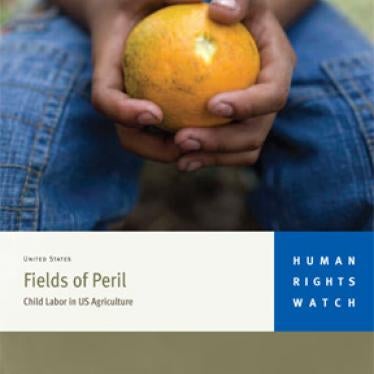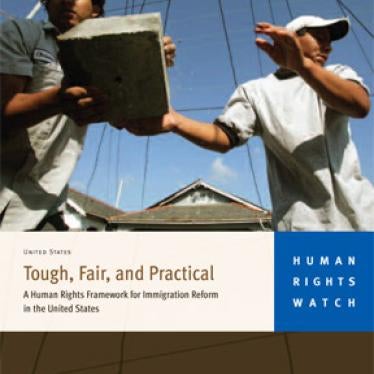At the first Senate hearing on the proposed Development, Relief and Education for Alien Minors Act (the DREAM Act) on Tuesday, Senator Richard Durbin declared the need to give certain young undocumented immigrants a chance at legal status "one of the most compelling human rights issues" currently facing the United States. The following day, at a symbolic graduation of "Dreamers" (undocumented students who would be eligible for conditional legal status under the act), speakers included Jose Antonio Vargas, the Pulitzer-winning journalist who recently revealed his own undocumented status, and members of the "Deportation Class of 2011," undocumented students who are in deportation proceedings or who were given deportation orders but later granted temporary stays.
Passing the DREAM Act would help to recognize the human rights of undocumented immigrants who were brought to the U.S. as children. The DREAM Act is an acknowledgement that young immigrants should not be punished for their parents' actions. The DREAM Act would help to preserve the family unity and community ties of young immigrants, and it would help to shield them from violence and abusive treatment, to which they are particularly vulnerable.
Under current immigration law, the U.S. is free to separate a longtime resident immigrant child from his or her cultural, family, educational, social and religious roots in the U.S. simply because of a parent's decision, often years earlier, to enter the country without authorization. The DREAM Act reforms U.S. immigration law so that it does not punish these youth for their parents' actions.
Article 2(2) of the Convention on the Rights of the Child, to which the U.S. is a signatory, provides that children are to be "protected against all forms of... punishment" on the basis of the status or activities of the child's parents, legal guardians or family members. For children eligible for the DREAM Act, the person who decided to enter the country without authorization was overwhelmingly the parent, not the child.
Human Rights Watch has urged the U.S. government to reform immigration law to take into account the connections immigrants establish within their communities, to safeguard the rights protected under international law. Many Dreamers work hard, excel academically and are highly involved in their schools, churches and communities. Yet under current U.S. law, immigration judges are not permitted to consider the immigrants' ties to the U.S., or accomplishments while in the U.S., in their removal proceedings. While these human rights concerns should be applied to many other long-term immigrants in the United States, the DREAM Act would solve that problem for young immigrants who have established particularly strong ties to the United States.
Human Rights Watch has also reported on the increased risk of violence and abusive treatment of children with unauthorized immigration status. A path to legal status for youth eligible under the DREAM Act would make it easier for those who are victims of violence and other abusive treatment to report violations to the police.
The DREAM Act is about to turn 10 years old. It is past time for the U.S. to respect the rights of Dreamers -- not only for their sake, but for the sake of their families, their communities and their country, the United States.








